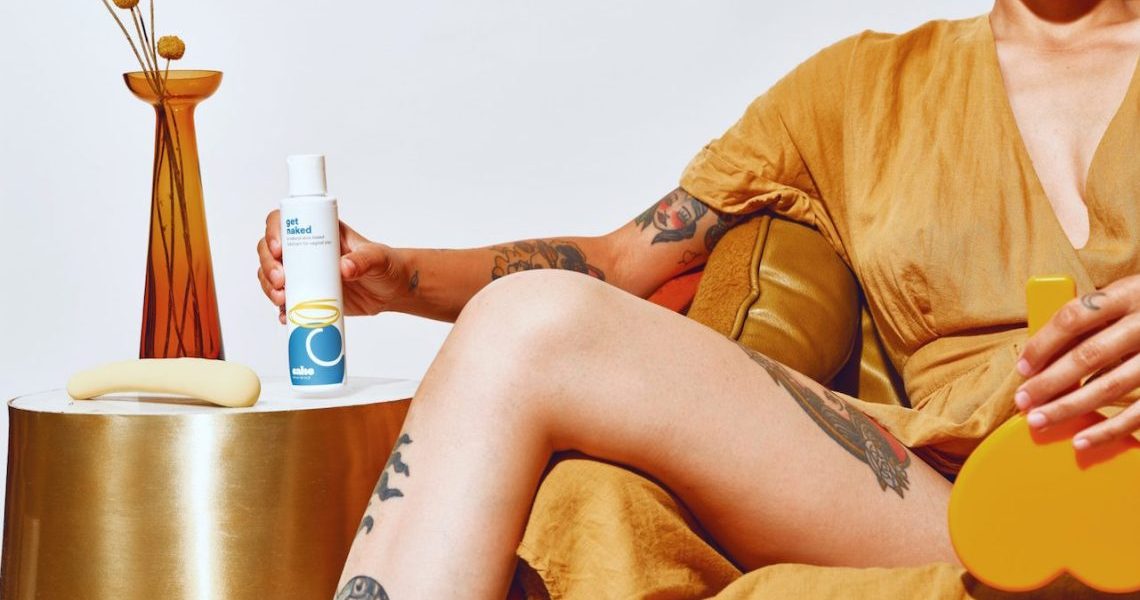The sexual wellness category is transforming to become more inclusive and diverse.
On Tuesday, DTC company Cake launched with $1.45 million in seed funding from Brian Spaly, Trunk Club and Bonobos co-founder; Roth Martin, Rothy’s co-founder; Brand Foundry Ventures; and Finn Capital, among others. Founded by Hunter Morris and Mitch Orkis, Cake’s branding and products are designed with the idea that gender and sexuality are nuanced and fluid, and that “traditional” relationship dynamics are evolving into outliers. The founders were unsatisfied with depictions of sex products and relationships in most sex shops, and with the products sold in drugstores, which looked outdated and were not made from clean ingredients. Cake launched with five products priced $22-$24, with names like “Motion Lotion” and “Get Naked.” They were designed for all people, including gay, lesbian and heterosexual couples, as well as individuals.
“Sex can be a fun, loving, consensual and wonderful act. Sadly, there’s so much stigma around that,” said Orkis. “Let’s talk about real people having real relationships and real sex, and build products for them.”
To promote its launch, Cake gifted products to 50 sexual health and education influencers with 3,000-100,000 followers, plus it launched paid advertising campaigns on Facebook and Instagram, and OTT ads on YouTube.
In addition to Cake, other companies operating in the sexual wellness space have started to approach it through the lens of inclusivity and diversity. CBD beauty brand Kush Queen launched a Pride collection on June 10, which includes CBD lubricant. Mobile app startup called Rosy helps women with low libidos through a library of digital content. At the same time, a three-year-old lubricant brand called Quim advertises its products as “for humans with vaginas and humans without vaginas who love vaginas.” As cultural viewpoints around sexuality, gender and relationship dynamics change, the sexual wellness market is responding accordingly. Gen Z, in particular, has proven to be more progressive on the topic of gender identity, compared to millennials.
Investments in sexual wellness have started to pick up, as well. CB Insights noted a shift in investor interest in early 2017 as the broader discussion of sexual wellness has become mainstream. Rosy received $1 million seed funding in February. Rebranding of other, less sexy, products such as deodorant, tampons and razors, to appeal to younger and more progressive customers, has also helped those categories (and their big margins) move away from their back-aisle locations.
“Until now, it’s largely been a one-size-fits-all approach,” said Spaly. “Today, more than ever, customers are looking for brands that support their unique sense of identity with understanding, compassion and acceptance.”
The current pandemic may also impact the sexual wellness space — retailers and brands are already reporting increased sales in the category. But many retailers, particularly mass ones like Target and Walmart, have often restricted in-store merchandising of sexual products. While not as restrictive compared to Facebook or Instagram, in-store merchandising has historically focused on the health rationale for sexual wellness products, such as tampons, rather than the pleasure proposition. Therefore, when Walmart and Target announced they would sell vibrators, in Oct. 2018 and April 2019, respectively, it made headlines.
Cake does intend to expand into major retailers, and it’s banking that its branding around inclusivity will strike a chord with retailers as they modernize assortments.
“The path that Cake is on is one that many retailers will be looking toward,” said Morris. “Retailers want to make sure that people are coming into their stores and buying products.”




